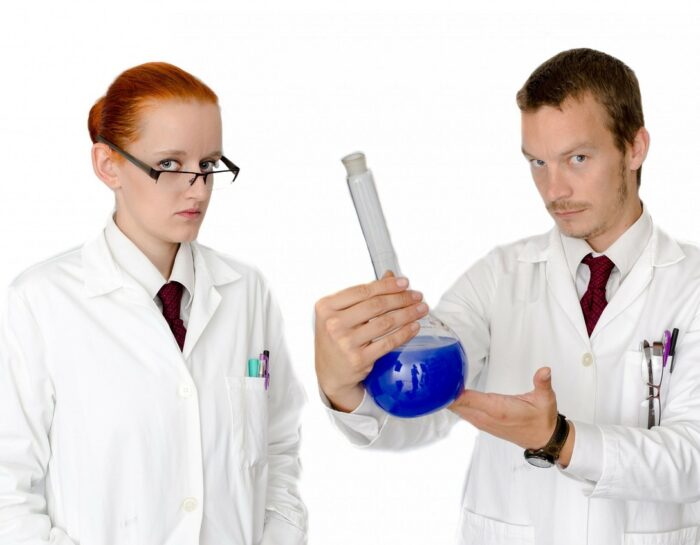By Chef Murph
Busted 5 Nutritional Supplements Myths:
We’ve become so interested in nutrition and eating a balanced diet. People are, now more than ever, seeking out ways to live a healthy lifestyle. And taking dietary supplements is simply part of it. “Even if you follow a healthy diet, a busy lifestyle can make it difficult to obtain the recommended amounts of vitamins and minerals from food alone,” says Elizabeth Somer, a leading registered dietitian and author of several books, including “The Essential Guide to Vitamins and Minerals.”

The problem, however, is that most of us guess about what we actually need because internet research is much easier than actually going to see a dietitian since we’re all so busy. But there are many myths and misconceptions that revolve around supplements, making it confusing and sometimes scary.
Here we bust some of the most common myths. Read on to make sure you’re getting the most out of your dietary supplements.
1. All supplements are the same.
Studies show that there are more than 1500 various formulas of multivitamins, which include dietary supplements, minerals, herbs and Phytochemicals. Yet there’s no one set, legal definition for the term “multivitamin”. Another important point is that they occur in different forms, and each one reacts to your body in different ways. One example is calcium which can be in the form of calcium Citrate Malate which is absorbed almost 50% better than other types and doesn’t need to be taken with meals, or calcium carbonate which can cause constipation if not taken at a proper time.
It’s really important to do some research before buying any type of supplement. Go online and look at all the varieties out there so you can decide which one is right for you. You can also talk to a dietitian to discuss your options.
2. Supplements are a fine substitute for prescription medicine.
It’s important to remember that even though prescription and over-the-counter medications require clinical testing prior to its appearance on the market, dietary supplements aren’t. Most of them aren’t monitored by the Food and Drug Administration (FDA) in any capacity, and are simply categorized as food items. So they can’t be used as an alternative for medication, but only as an aid to help enhance your body, how it reacts to your medication and to improve your overall lifestyle. Talk to your dietitian or physician to find out which supplements best compliment your medication.
3. Since supplements are good for you, the dosage doesn’t matter. It’s often believed that since supplements are sold over the counter that they’re safe if taken in large quantities. However, the truth is that there are some vitamins that are toxic if taken in large doses. For example, WebMD says, vitamins A, D, E and K are all very beneficial to your health when taken at their proper doses, but if too much is taken and absorbed into the bloodstream, the body can’t get rid of it quickly enough and instead, stores it in fat cells.
They’re what are known as fat soluble, which means they aren’t excreted by the body, instead, they build up and become extremely harmful to your health. Large amounts of vitamin A can elevate the risk of osteoporosis; too much vitamin E may increase the risk of a stroke; large doses of vitamin D can lead to kidney failure; and increased doses of vitamin K (also known as the “clotting vitamin”) can lead to bruising easily and excessive bleeding.
There are also vitamins that are water soluble which are much more easily excreted by the body. Yet they can also be harmful when taken in large doses, especially vitamin B6 which can cause nerve damage if taken in large quantities. Also, too much vitamin C can interfere with the absorption of copper into the bloodstream, and can also cause kidney stones.
4. When you take your supplements isn’t really that important.
Timing is important for supplements. Taking them with your medication, for example, isn’t a good idea because some supplements can either speed up the absorption of certain medication, or block it altogether. So you’re either getting too much medicine at once, or not at all.
Furthermore, if you take supplements on an empty stomach, you run the risk of your body excreting most of it. When taken with your biggest meal, the nutrients within the pill bonds with the food and gets absorbed better into the bloodstream.
5. Supplements are a replacement for a poor diet.
Even though supplements aren’t a substitute for a proper diet, they can be used to fill in nutritional gaps when our diet is lacking in one thing or another. Vitamin D and omega-3 fatty acid are good examples of this since vitamin D isn’t found in many whole foods and not everyone eats their recommended dose of seafood to get the omega their body requires.
 A final tip
A final tip
We all know that eating fruits, vegetables, cereals and whole grains on a daily basis will give your body the minerals and vitamins it needs. But for whatever reasons, we can’t always get the right amounts to maintain a healthy diet.
This is where dietary supplements come in. and even though they’re not replacements for a healthy, well-balanced diet, they can, in fact, provide you with the nutrients your body is lacking.
Always talk with your Doctor. would prefer that you juice to for nutrients and minerals. Take a look at my Plant nutrition book” Plants A to Z” it might help in your quest.
Chef Murph
XoxoX
Tags: chef keith murphy, chef murph, Chef Murph TV, Chef Murphy, Chinese, food, Foodist Networks, Global Fusion Americana, Recipes, Supplements

